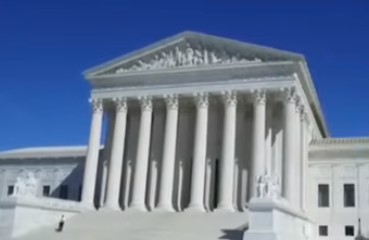Newsman: The Supreme Court on Monday said former presidents are entitled to some protections for “official” acts but rejected Donald Trump’s sweeping claim of “absolute” immunity from criminal prosecution in his federal election subversion case.
Today’s decision says presidents have immunity for official acts but not all acts are official, and lower courts must decide which acts qualify for each.
Monday’s decision to send the case back to trial Judge Tanya Chutkan all but guarantees that there will be no Trump trial on the election interference charges for months. Even before the immunity case, Judge Chutkan indicated that trial preparations would likely take three months. Now, she will also have to decide which of the charges in the Trump indictment should remain and which involve official acts that under the Supreme Court ruling are protected from prosecution.
The 6-3 opinion was delivered by Chief Justice John Roberts as the blockbuster decision split the court along ideological lines.
Chief Justice Roberts said presidents are not above the law.
“But under our system of separated powers, the President may not be prosecuted for exercising his core constitutional powers, and he is entitled to at least presumptive immunity from prosecution for his official acts,” he wrote. “That immunity applies equally to all occupants of the Oval Office.”
Chief Justice wrote that “Trump asserts a far broader immunity than the limited one we have recognized.”
Deciding for the first time whether presidents are immune from criminal prosecution, a divided Supreme Court said “official” acts taken by a president are protected but not steps he took as a candidate.
“The parties before us do not dispute that a former President can be subject to criminal prosecution for unofficial acts committed while in office,” Chief Justice John Roberts wrote for the divided opinion. “They also agree that some of the conduct described in the indictment includes actions taken by Trump in his unofficial capacity.”
“Certain allegations–such as those involving Trump’s discussions with the Acting Attorney General–are readily categorized in light of the nature of the President’s official relationship to the office held by that individual,” he wrote. In other words, “Trump is … absolutely immune from prosecution for the alleged conduct involving his discussions with Justice Department officials.”
The justices are sending the case back to the trial court to determine what acts alleged in special counsel Smith’s indictment constitute official duties that could be protected from liability and which are not. Such a delay is a win for Trump, who has sought to push his prosecutions past the November election.
That part of the court’s decision likely ensures that the case against Trump won’t be tried before the election, and then only if he is not reelected. If he is reelected, Trump could order the Justice Department to drop the charges against him, or he might try to pardon himself in the two pending federal cases.
Chief Justice John Roberts wrote the court’s decision, joined by his fellow conservatives. Dissenting were the three liberals, Justices Elena Kagan, Sonia Sotomayor and Ketanji Brown Jackson.
Chief Justice Roberts acknowledged that the case was unprecedented.
“No court has thus far considered how to distinguish between official and unofficial acts,” he wrote, while chiding the lower courts for rendering “their decisions on a highly expedited basis.” He said the lower courts “did not analyze the conduct alleged in the indictment to decide which of it should be categorized as official and which unofficial.”
The ruling will affect whether Trump faces a federal trial this year on four felony counts brought by special counsel Jack Smith, including conspiracy to defraud the U.S. and obstruction of an official proceeding, for his attempts to overturn his 2020 election loss to President Joe Biden.
Justice Sonia Sotomayor, writing in dissent, said the majority’s decision “reshapes the institution of the presidency.”
“It makes a mockery of the principle, foundational to our Constitution and system of Government, that no man is above the law,” she wrote. Sotomayor was joined in her dissent by Justices Elena Kagan and Ketanji Brown Jackson.
Trump has also claimed immunity in his federal case in Florida for allegedly hoarding classified documents after leaving the White House, and in his election interference case in Georgia.
Trump is accused of trying to steal the 2020 election by spreading lies about election fraud and attempting to persuade state officials, his vice president and Congress to prevent the certification of the legitimate results.
Trump’s attorneys argued the threat of future prosecution and imprisonment would destroy the strength and authority of the presidency by subjecting them to politically motivated prosecutions.
Trump, the first president – former or current – to be criminally charged, argued he can’t be prosecuted for actions he took in his official capacity during his administration, an extension of the reasoning the Supreme Court used in 1982 when it barred civil suits against a president for official actions.

